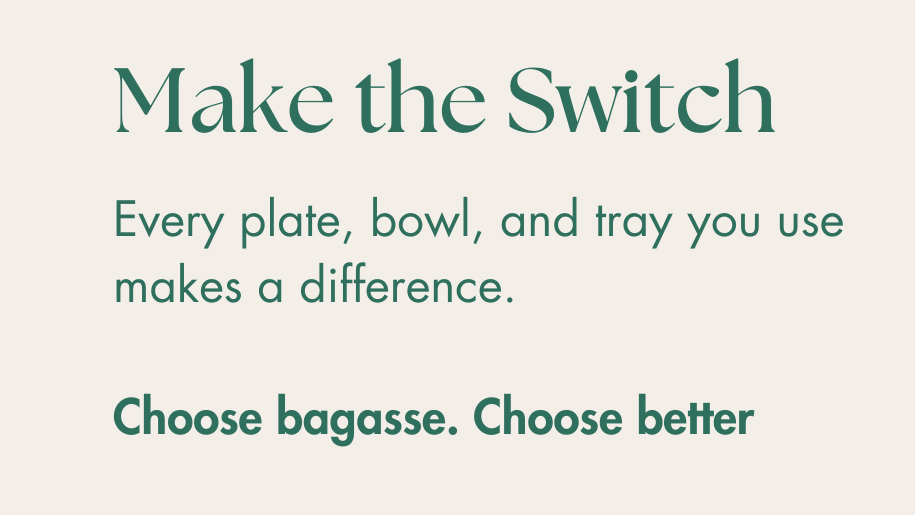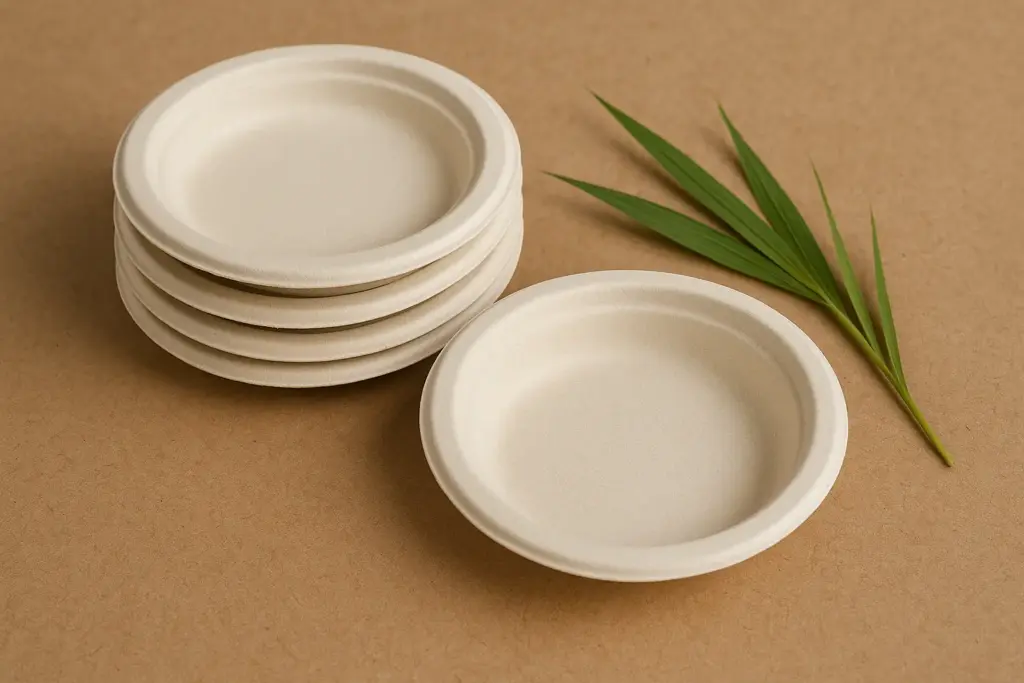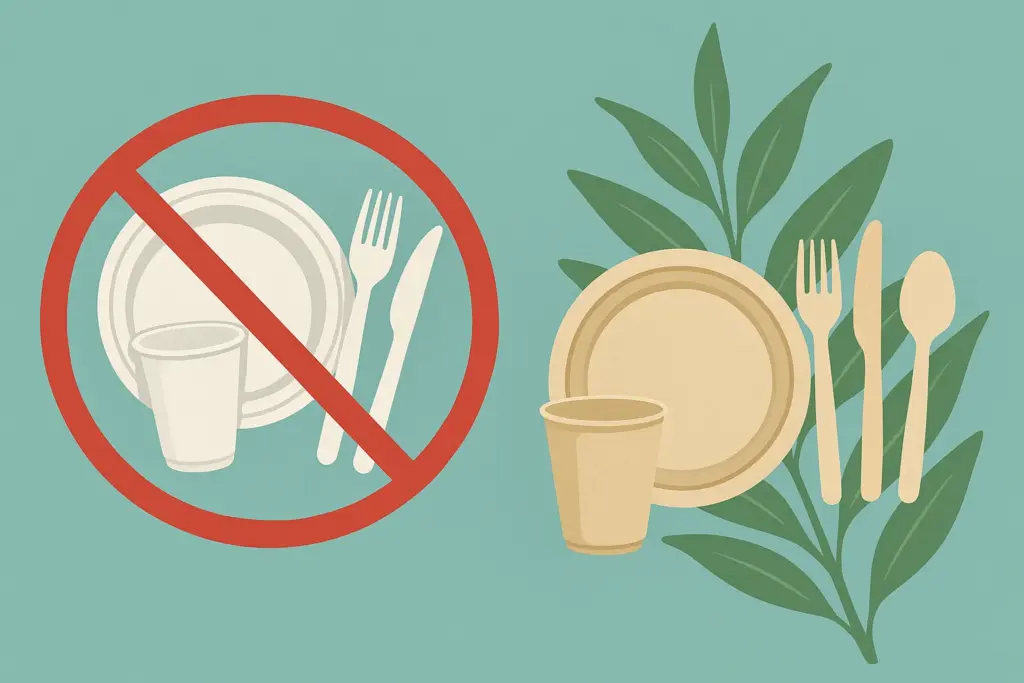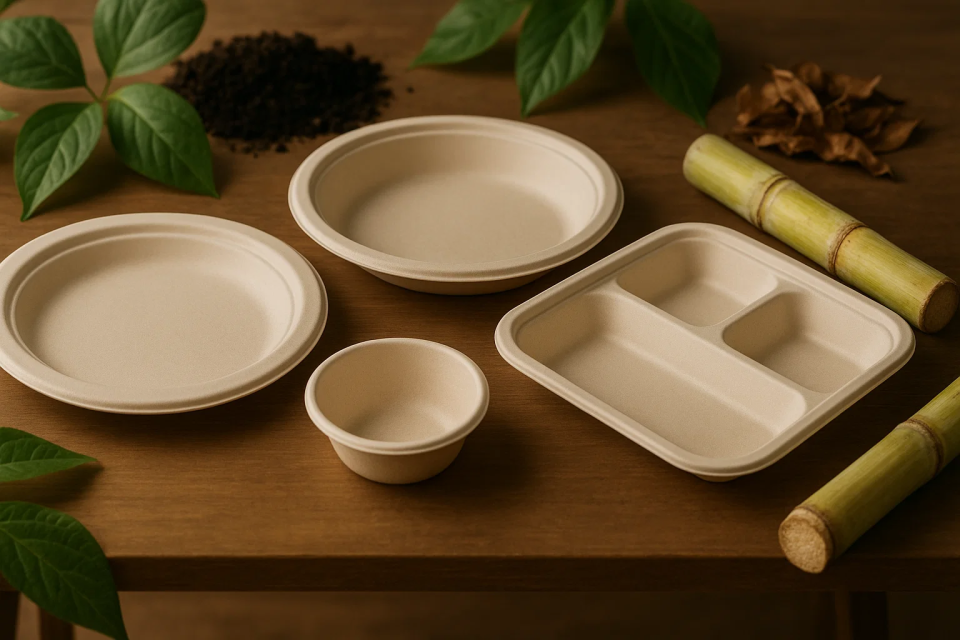What’s the cost of a single-use plate?
Not in rupees. Not in dollars. In damage. In microplastics in our bloodstreams. In oceans choking on convenience. In landfills that are suffocating the very soil that once fed us.
We live in a world where time is currency and convenience is king. Need a quick meal? Grab a takeaway. Hosting guests? Paper plates. Coffee on the go? Plastic cup. Then, throw it all away and carry on. But here’s the catch: “away” isn’t a place. It’s our planet.
The Disposable Dilemma
Every year, the world generates over 400 million tonnes of plastic waste, and nearly half of it comes from single-use products. That includes your plastic forks, styrofoam containers, laminated paper plates, and more.
- 500 billion disposable cups are used annually worldwide.
- A single plastic spoon takes 200 to 500 years to decompose.
- Over 14 million tons of plastic enter our oceans every year.
And while we toss them away after one meal, they outlive generations.
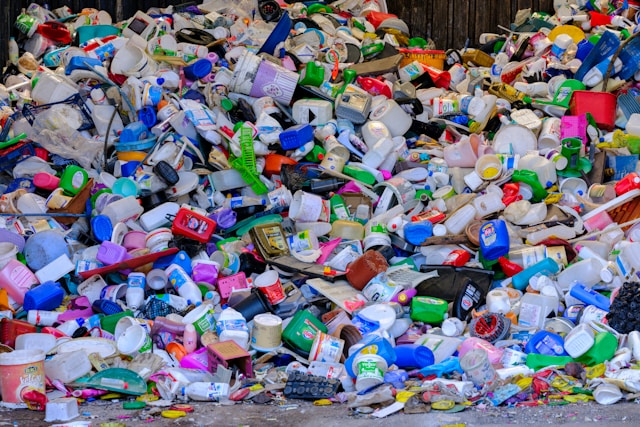
It’s Not Just the Oceans
When we think of pollution, we often imagine marine life tangled in plastic. But the impact runs deeper:
- Soil degradation: Chemicals from disposables seep into the ground, reducing fertility.
- Air pollution: Burning plastic waste releases toxic dioxins and furans.
- Human health: Microplastics have been found in human blood, lungs, and even placenta.
We’re not just poisoning the planet—we’re poisoning ourselves.
The Psychology of Convenience
Let’s be honest—disposables feel easier. No dishes, no cleanup. But that convenience has made us numb to consequence. We value ease over impact, speed over sustainability.
Convenience is temporary. The damage is not.

The Sustainable Shift: What Can You Do?
The good news? We are not powerless.
- Switch to biodegradable alternatives. Tableware made from bagasse (sugarcane fiber), palm leaves, and other natural materials decomposes in 60–90 days.
- Support businesses using sustainable packaging. Ask questions. Make choices that align with your values.
- Reuse and reduce. Carry your own cup, your own containers, your own cutlery.
- Compost. If your city doesn’t offer it, push for it.
These small shifts, multiplied across communities, can reshape consumption habits—and help reverse the damage.

Why Bagasse Deserves a Mention
It’s made from agricultural waste—no trees cut, no extra land used. Strong, safe, and heat-resistant, bagasse tableware is compostable and disappears in a fraction of the time compared to plastic. It’s not just a product. It’s a philosophy: nothing wasted, nothing harmed.
The Real Question Is: What Kind of Future Do We Want?
One where our children play in clean parks or one where their playgrounds are landfills?
One where rivers flow with life or with layers of plastic?
Disposable culture isn’t just about what we throw away. It’s about what we choose to keep—our ethics, our planet, our responsibility.
It’s time to trade convenience for consciousness. One meal, one plate, one decision at a time.
